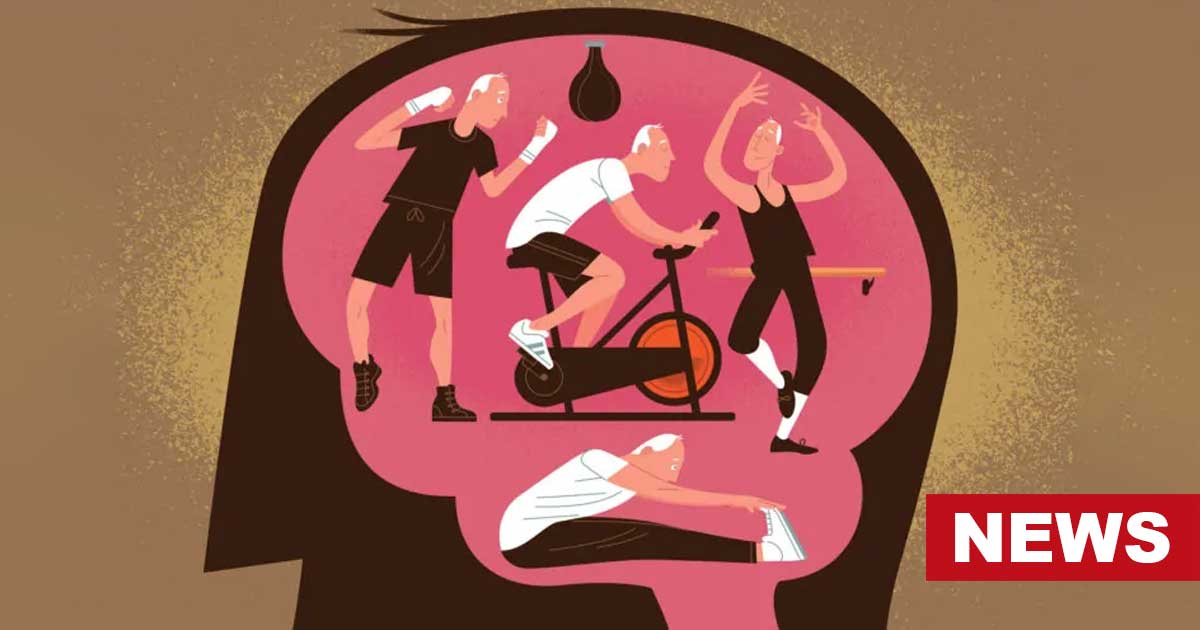- Research shows that physical activity can be a great wonder drug to improve your mental health.
- Several initiatives (such as Uniting the Movement) aim to address mental health challenges via structured exercise programs and community support.
The Mental Health Benefits Of Physical Activity
Physical activity has long been associated with numerous physical health benefits, but its positive impact on mental health is equally significant. Engaging in regular physical activity can have profound effects on one’s mental well-being, helping to alleviate symptoms of stress, anxiety, and depression.
Research has consistently demonstrated the mental health benefits of physical activity, highlighting its potential as a powerful tool for improving overall psychological well-being.
Firstly, physical activity promotes the release of endorphins, commonly known as “feel-good” hormones, in the brain. Endorphins help to reduce feelings of pain and induce a sense of well-being and happiness.
Engaging in activities such as brisk walking, jogging, or cycling triggers the release of these endorphins, leading to an improved mood and reduced symptoms of anxiety and depression.
Secondly, regular physical activity can act as a powerful stress reliever. When we engage in physical exercise, our body’s stress response is activated, allowing us to burn off excess adrenaline and cortisol, the stress hormones.
This not only helps us to better manage stress but also promotes better sleep, which is crucial for maintaining good mental health.
Physical Activity, The Wonder Drug To Improve Your Mental Health
In recent years, physical activity has gained recognition as a “wonder drug” for improving mental health. It has been found to be as effective as some medications and psychotherapies in managing mild to moderate depression and anxiety.
Unlike medication, physical activity has no adverse side effects and offers a holistic approach to mental health treatment.
Research suggests that physical activity boosts self-esteem and self-confidence, which are often compromised in individuals with mental health challenges.
Engaging in physical activity allows individuals to set goals, track progress, and experience a sense of achievement, leading to improved self-worth and a more positive outlook on life.
Furthermore, physical activity provides an opportunity for social interaction and support, which is crucial for mental well-being. Group activities such as team sports, exercise classes, or walking groups offer a sense of belonging and community, reducing feelings of loneliness and isolation that often accompany mental health disorders.
Initiatives That Use Physical Activity To Address Mental Health Challenges
Many researchers and organizations have developed exercise-based interventions specifically designed to address mental health challenges. These interventions involve structured exercise programs and physical activity interventions tailored to individuals with mental health conditions, including depression, anxiety, and schizophrenia.
These also promote mindful movement practices, such as yoga, tai chi, and qigong, besides recognizing the connection between physical movement and mental well-being. These practices combine physical activity with mindfulness techniques to promote relaxation, stress reduction, and improved mental clarity.
Some famous initiatives across the globe highlighting the growing recognition of physical activity as a powerful tool for addressing mental health challenges include:
- Uniting the Movement in the UK
- Exercise as Medicine, promoted by the American College of Sports Medicine (ACSM)
- Active Minds in the US
- Parkrun in the UK
- Run to Quit in Canada
- Mind Over Marathon, launched by the BBC in the UK
Ways To Rethink Mental Illness Recovery With Physical Fitness
Consider the following tips to reap the mental health benefits of physical fitness:
- Incorporate regular physical activity into mental health treatment plans as a complementary approach to medication and psychotherapy.
- Encourage individuals with mental illness to set realistic fitness goals and track their progress to enhance self-esteem and motivation.
- Promote the integration of physical activity within mental health care facilities, such as psychiatric hospitals and community mental health centers.
- Support the development of specialized exercise programs tailored to the needs and limitations of individuals with specific mental health conditions.
- Advocate for the inclusion of physical activity in mental health education and awareness campaigns to reduce stigma and increase understanding of the benefits.
- Establish partnerships between mental health organizations and fitness facilities to provide accessible and affordable physical activity options for individuals with mental health challenges.
Physical activity offers numerous mental health benefits, including improved mood, reduced stress, enhanced self-esteem, and increased social support. Initiatives like Uniting the Movement are working towards harnessing the power of physical activity to address mental health challenges on a broader scale.
This Mental Health Awareness Month, by pledging to incorporate physical fitness into mental health recovery, we can enhance overall well-being and promote a holistic approach to mental health care.
Know More About –
Related Articles –
- The Number One Exercise For Slowing Down The Aging Process, Studies Suggest
- Get Fit At Home: The Best Beginner Workout Plan At Home For A Stronger, Healthier You
- Connection Between Physical and Mental Well-Being: 8 Proven Strategies for Total Life Transformation



